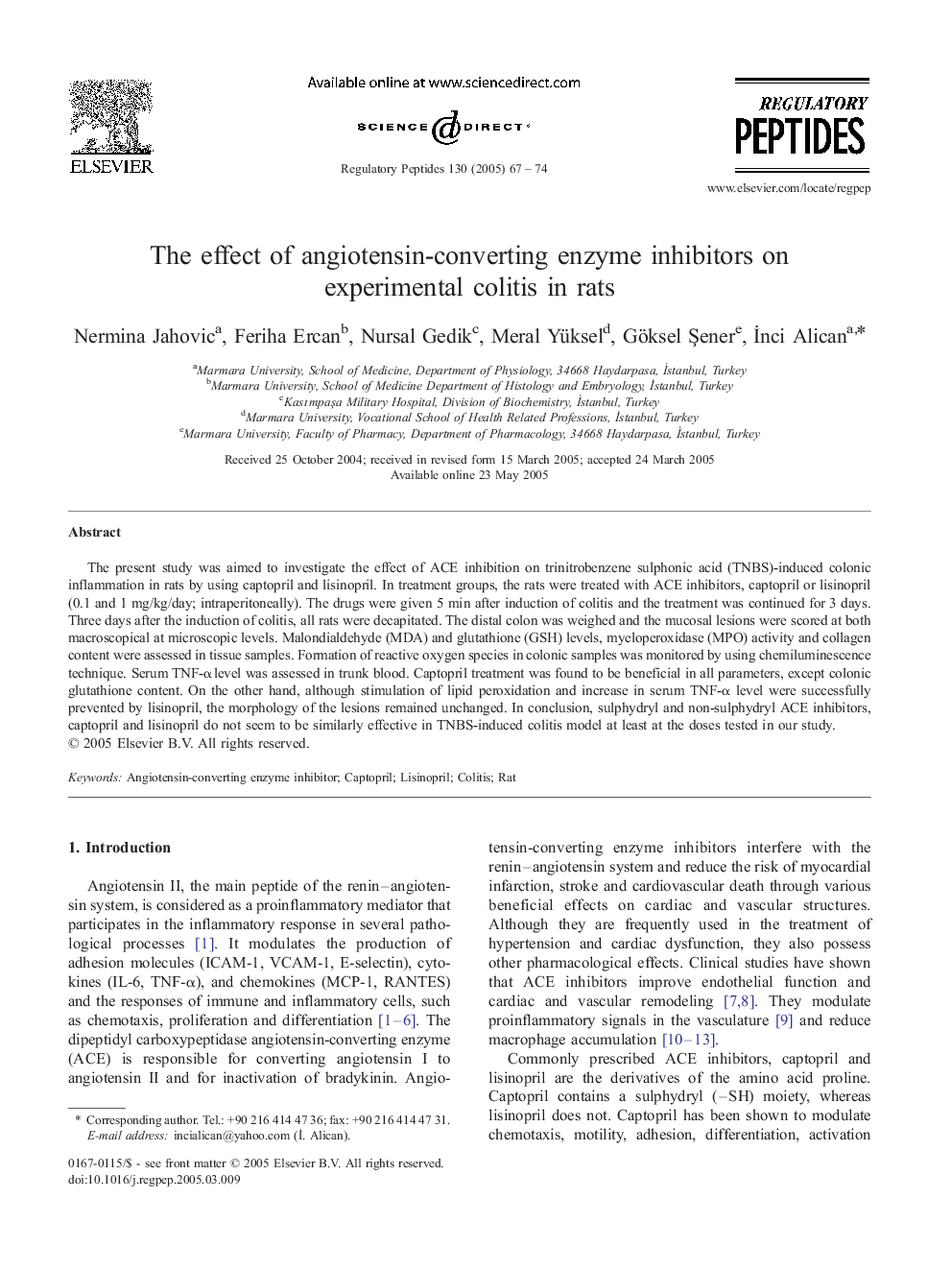| Article ID | Journal | Published Year | Pages | File Type |
|---|---|---|---|---|
| 9894393 | Regulatory Peptides | 2005 | 8 Pages |
Abstract
The present study was aimed to investigate the effect of ACE inhibition on trinitrobenzene sulphonic acid (TNBS)-induced colonic inflammation in rats by using captopril and lisinopril. In treatment groups, the rats were treated with ACE inhibitors, captopril or lisinopril (0.1 and 1 mg/kg/day; intraperitoneally). The drugs were given 5 min after induction of colitis and the treatment was continued for 3 days. Three days after the induction of colitis, all rats were decapitated. The distal colon was weighed and the mucosal lesions were scored at both macroscopical at microscopic levels. Malondialdehyde (MDA) and glutathione (GSH) levels, myeloperoxidase (MPO) activity and collagen content were assessed in tissue samples. Formation of reactive oxygen species in colonic samples was monitored by using chemiluminescence technique. Serum TNF-α level was assessed in trunk blood. Captopril treatment was found to be beneficial in all parameters, except colonic glutathione content. On the other hand, although stimulation of lipid peroxidation and increase in serum TNF-α level were successfully prevented by lisinopril, the morphology of the lesions remained unchanged. In conclusion, sulphydryl and non-sulphydryl ACE inhibitors, captopril and lisinopril do not seem to be similarly effective in TNBS-induced colitis model at least at the doses tested in our study.
Related Topics
Life Sciences
Biochemistry, Genetics and Molecular Biology
Biochemistry
Authors
Nermina Jahovic, Feriha Ercan, Nursal Gedik, Meral Yüksel, Göksel Åener, Ä°nci Alican,
